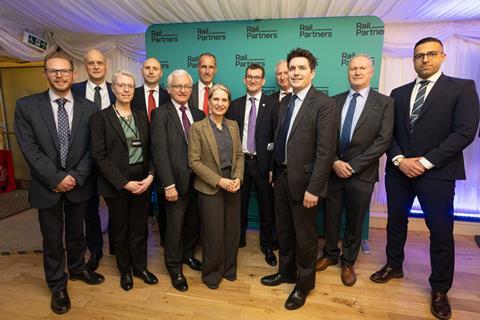
UK: Train operator owning group association Rail Partners has published Freight Britain: An Engine for Green Growth, outlining five policies it would like to see to support the long-term growth of rail freight beyond the general election.
These are:
- to address the widening gap between road and rail costs to create a level playing field, with a review of taxation and incentives and a creative approach to charging including time-limited discounts for new traffic and lower charges for using greener trains;
- maintaining and expanding grant schemes to remove lorries from roads;
- securing long-term access to the network, with access contracts set at 10 years by default;
- reliable infrastructure, with the Ely Junction Upgrade project as a priority;
- Rail Partners says there is broad consensus that the current market structure for rail freight works and should not be changed, but that reform should include a commitment to freight growth and the creation of a Strategic Freight Unit within Great British Railways.
The report was launched with a reception at the House of Commons on March 5 where speakers included Rail Minister Huw Merriman, Liberal Democrat transport spokesperson Wera Hobhouse, and Labour’s Shadow Roads Minister Bill Esterson standing in for Shadow Transport Secretary Louise Haigh.
Rail Partners CEO Andy Bagnall said freight operators have invested more than £3bn to improve the performance, safety and reliability of freight since privatisation.
All speakers quoted a statistic based on analysis from the University of Hull which calculates that work to enable the operation of longer, heavier freight services means that a single train can now remove up to 129 HGVs from the roads.
‘Growing rail freight compared to other modes of transport should be a national priority regardless of who wins the next election’, said Bagnall.
‘Rail freight operators want to invest in better, greener trains and freight facilities. To do so they need decision makers to work in partnership with them and create a favourable environment for growth. That means providing confidence around access to the network and investments in capacity.
‘Increasing rail freight services has the backing of all the main parties, so government should invest for the long term in tangible support, from targeted infrastructure investment to the right incentives to encourage customers to switch to rail, helping to decarbonise supply chains.’
DB Cargo UK Chief Executive Andrea Rossi said the government’s target of 75% growth by 2050 ‘is a floor and not a ceiling — we want to smash through it’.



